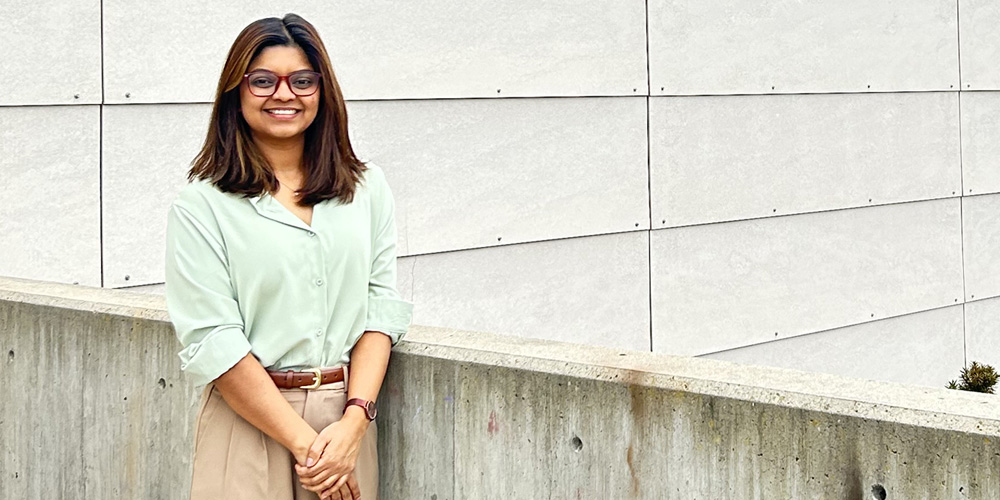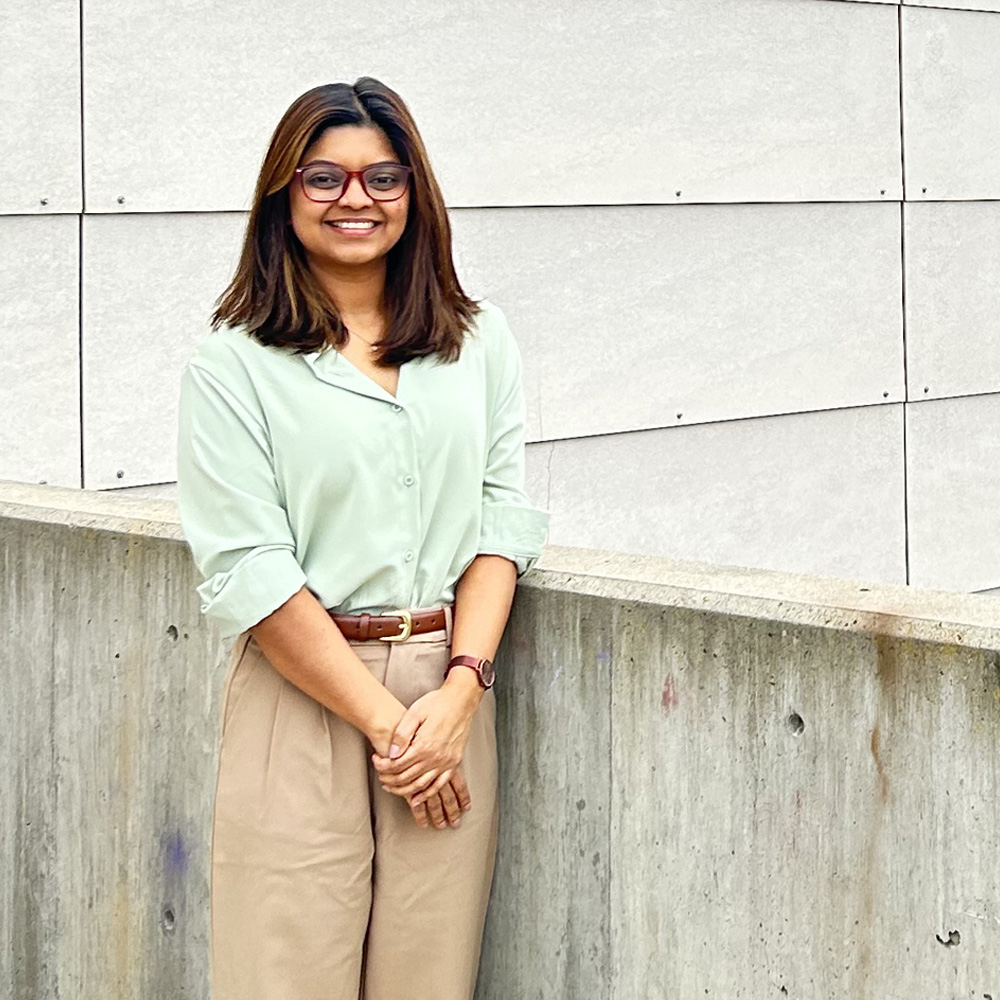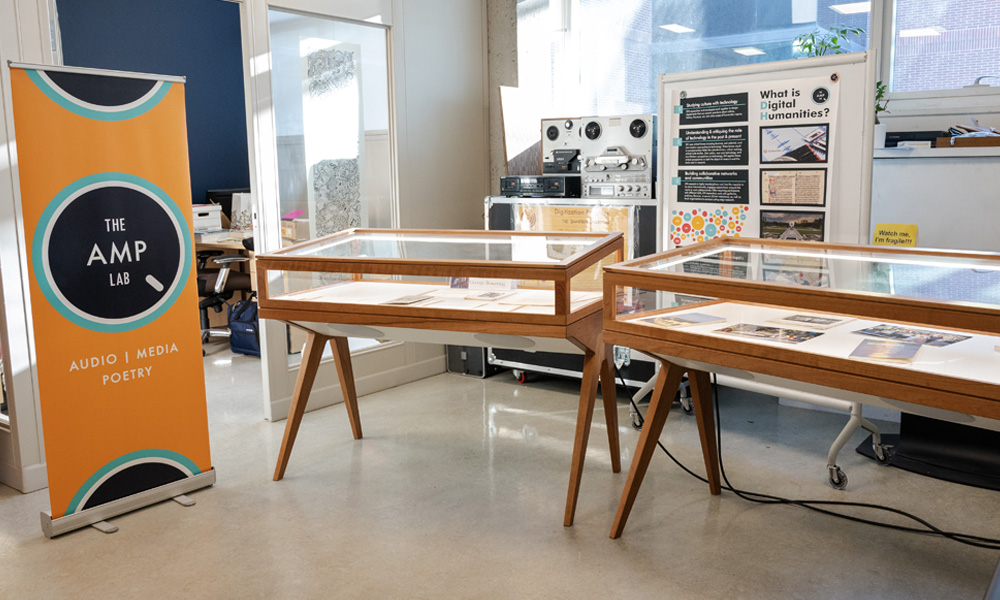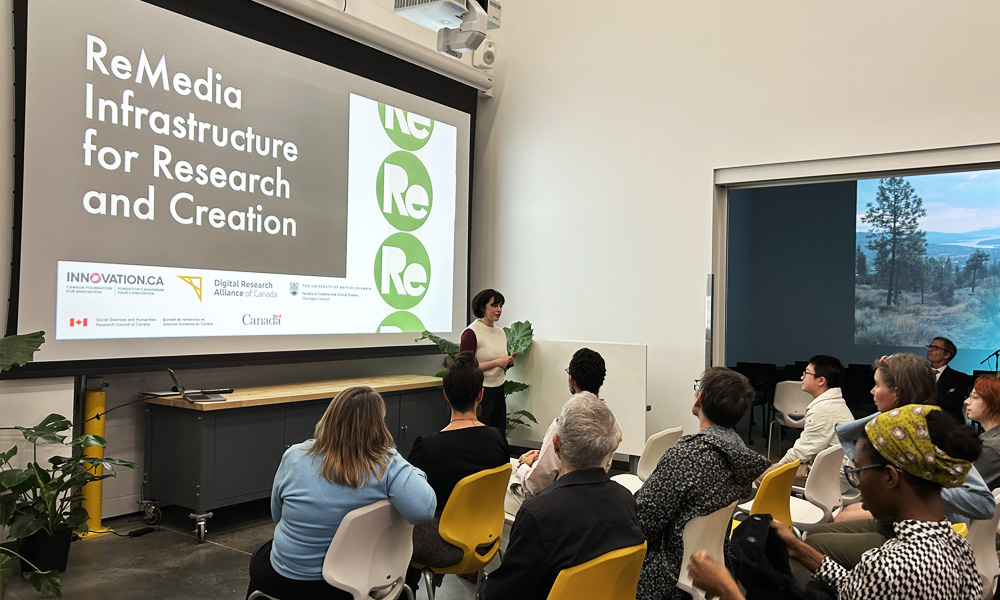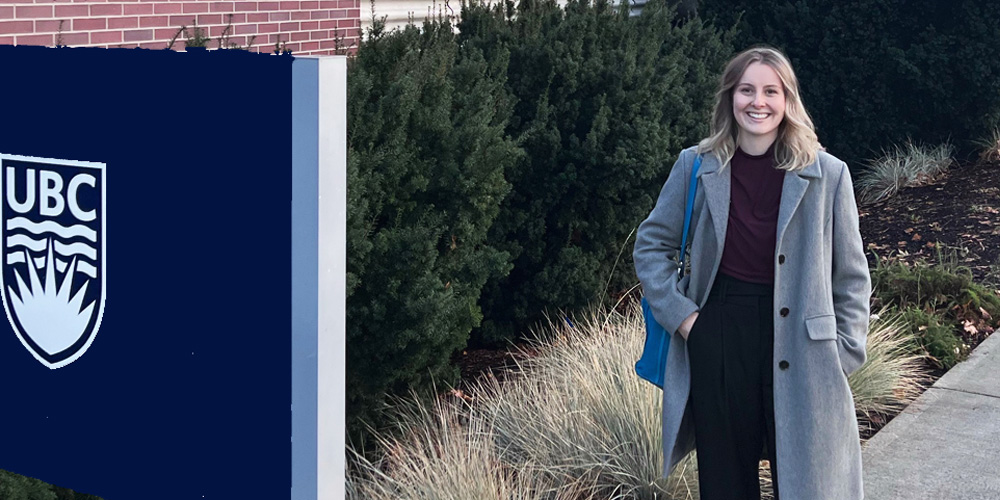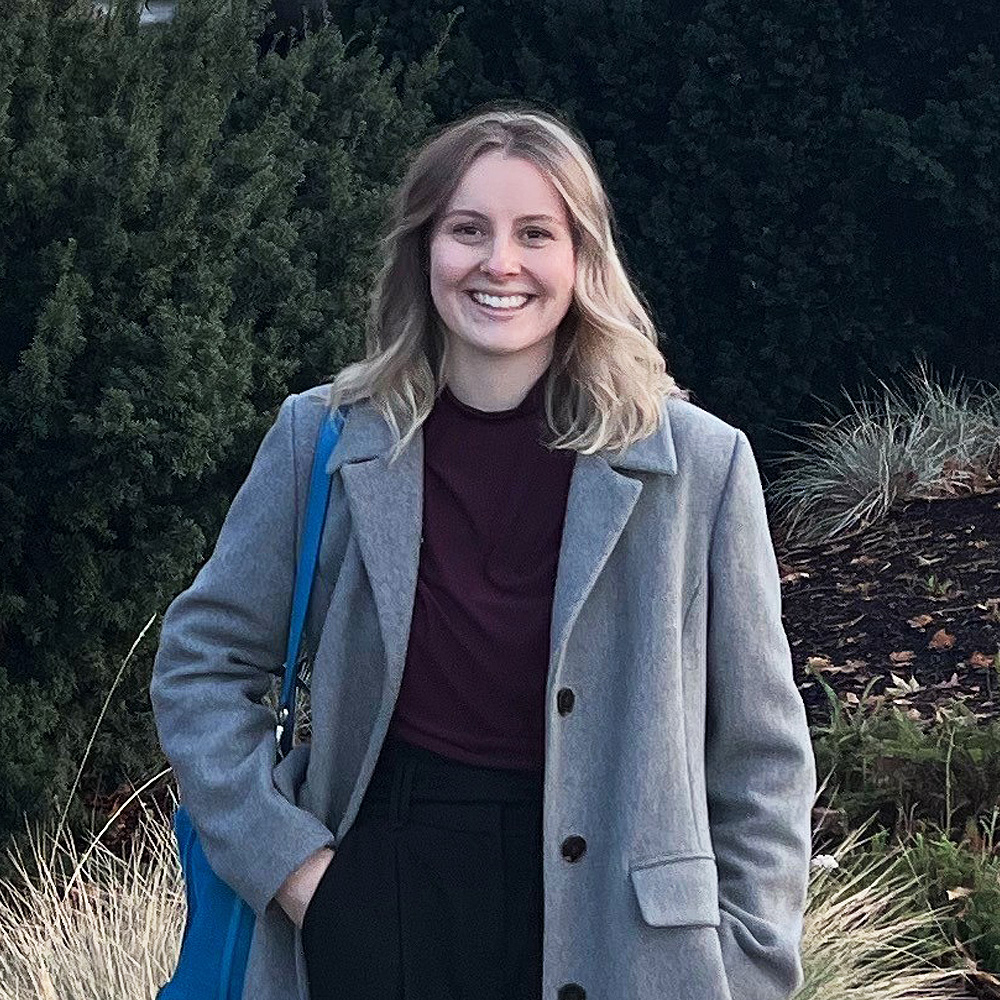Master of Arts (MA)
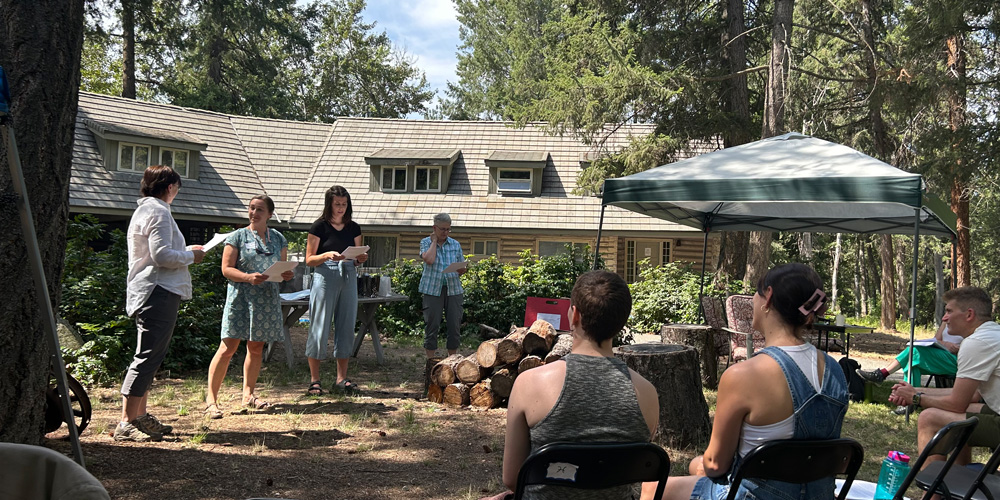
Faculty of Creative and Critical Studies
| Program | Components | Length |
|---|---|---|
| MA in English | Thesis | 16 to 24 months |
| MA in English | Coursework | 12 to 16 months |
Why study English at UBC Okanagan?
The Masters of English at UBC Okanagan is located in the Faculty of Creative and Critical Studies, and we acknowledge that the land on which we are situated is the unceded territory of the Syilx (Okanagan) People. Centred around the Humanities, our faculty members engage in research and critical analysis across many different fields of study, informed by multiple disciplines.
Our program includes scholars from diverse program areas: World Languages and Literatures, Cultural Studies, Digital Humanities, and English and Indigenous Literature. Though diverse, these subjects are interrelated, allowing for a systematic interdisciplinarity.
The international scope of the program allows students to better understand cultures beyond the Anglo-American focus of most English programs in Canada. Although UBCO is a smaller and younger campus within a larger UBC system, we are a very research-intensive community. The size of our campus allows for closer rapport and provides opportunities for students to engage regularly with faculty across our programs. If this is the kind of degree you seek, we will be thrilled to welcome you here to our unique program.
To complete the thesis option MA in English, students are required to take 30 credits:
- 18 credits attained through coursework: ENGL 501, ENGL 502, ENGL 503, and additional courses normally chosen from the English 520 and 530 series (details below);
- 12 credits achieved by completing the thesis (English 599). The thesis ranges from 15,000 to 20,000 words and requires an oral defence administered by the College of Graduate Studies. On March 1 of the second semester, you will submit a Thesis Proposal of 2,500 words with a four-page bibliography to the Graduate Programs and Planning Committee; it is developed in consultation with your supervisor.
Students are required to take core courses that are taught every year as well as courses chosen from the English 520 and 530 series. See Graduate Courses for details.
The thesis is a 12-credit independent research project that advances current knowledge in the student’s chosen field and within the larger discipline of literary and cultural studies, between 15,000 and 20,000 words, based on independent research conducted by the student. It must be accompanied by a bibliography, use MLA style citation, and be presented properly formatted. The thesis will need to be defended in an oral exam.
For the coursework option, students complete an Independent Research Paper (IRP), a 9-credit academic paper of publishable length, between 7,500-10,000 words, based on independent research conducted by the student.
To complete the coursework option MA in English, students are required to take 30 credits:
- 21 credits attained through coursework: ENGL 501, ENGL 502, ENGL 503, and additional courses normally chosen from the English 520 and 530 series (details below);
- 9 credits achieved by completing English 590, the Independent Research Paper (IRP). The IRP ranges from 7,500 to 10,000 words.
- On March 1 of the second semester, you will submit an IRP Proposal of 1,500 words with a three-page bibliography to the Graduate Programs and Planning Committee it is developed in consultation with your supervisor.
- Coursework students typically complete the degree in 12 months and might take up to 16 months.
Students are required to take core courses that are taught every year as well as courses chosen from the English 520 and 530 series. See Graduate Courses for details.
English 501 Methodologies: Critical Theory: This course examines critical and cultural theory and how it informs current practices of research.
ENGL 502 Interdisciplinary Approaches to Literature and Culture : This course introduces students to a broad range of interdisciplinary approaches in literary and cultural studies.
English 503 Practices in the Profession of Literary Studies and Related Disciplines: Introduction to the profession’s expectations, practices, and responsibilities. Pass/Fail
The following courses will be taught based on faculty research interests and expertise. They will be offered on the basis of faculty rotation. We will offer at least four per year and content will change annually. All courses will align with the following rubric.
ENGL 521: Topics in Historical Periods and Movements
ENGL 522: Topics in Genre Studies
ENGL 523: Topics in National/International Literatures and Culture
ENGL 524: Individual Author Studies
ENGL 525: Studies in Diversity and Identity
ENGL 531: Place and Power
ENGL 532: Culture and Location
ENGL 533: Narrating Place
2025/26 TERM 1
ENGLISH 501: METHODOLOGIES: CRITICAL THEORY. Dr. Melissa Jacques.
ENGLISH 503: PRACTICES IN THE PROFESSION OF LITERARY STUDIES AND RELATED DISCIPLINES. Dr. Jordan Stouck.
ENGLISH 524: THE GAWAIN POET. Dr. Michael Treschow.
ENGLISH 599: MASTER’S THESIS
2025/26 TERM 2
ENGLISH 502: INTERDISCIPLINARY APPROACHES TO LITERATURE AND CULTURE. Dr. Maria Alexopolous.
ENGLISH 521: POSTHUMANISM & CRITICAL ANIMAL STUDIES. Dr. Jodey Castricano.
ENGLISH 523: CANADIAN ENVIRONMENTAL WRITING. Dr. Greg Garrard.
ENGLISH 525: BLACK INTELLECTUAL TRADITION. Dr. Bryce Traister
Research and Supervisors
Research Areas
The MA degree draws on the expertise of faculty members with national and international publications in every period of English literature from medieval to postmodern. Graduate students can pursue these and other faculty research and teaching interests:
|
|
Supervisors
Graduate student supervisor
Graduate student supervisor
Graduate student supervisor
Graduate student supervisor
Graduate student supervisor
Graduate student supervisor
Graduate student supervisor
Graduate student supervisor
Graduate student supervisor
Graduate student supervisor
Graduate student supervisor
Graduate student supervisor
The success of UBC Okanagan’s MA in English Program depends on exceptional students.
Please touch base with a faculty supervisor before you start the application process. We look forward to hearing about your research interests and career goals.
Research interests: Transnational modernism; First World War poetry, 20th-century British and Irish literature; modernism and transatlantic modernism; peace and war studies; aesthetics.
Research interests: African and African Diaspora Literature, Postcolonial Studies, Trauma and Memory Studies
Research interests: Medieval and Renaissance studies; short narrative genres; German language and culture.
Research interests: 19th-century studies, including gothic studies and psychoanalysis (Freud/Jung); critical animal studies; ecofeminism; critical and literary theory, film and media studies; feminist and queer theory; ethics; social activism.
Research interests: Indigenous Epistemologies, Salishan Intellectual Traditions and Literatures (Interior Salish Literatures and Coast Salish Literatures), Indigenous Literatures, Indigenous Storywork, Indigenous Oral Traditions, Indigenous Literacies, Indigenous Land/Ocean-Based Pedagogies, Indigenous Languages, Multimodal and Multi-sensory Literacies, Cognitive Maps and Geography, Rhetoric, Discourse Analysis, A/r/tography and Arts-Based Research, Autoethnography and Memoir, Mixed Genre Writing, Writing Education.
Research interests: Literary and cultural history of the long eighteenth-century in Britain; narrative studies; and gender and sexuality theory.
Research interests: Restoration and 18th-century theatre; ideological instability in the comedies and farces of Edward Ravenscroft; theories of comedy during the late 17th century; political satire and censorship of the stage during the 1720s and 1730s.
Research interests: Ecocriticism; contemporary environmental writing; critical animal studies; film and media studies; literature and science; Canadian literature.
Research interests: Canadian literatures; diaspora literatures and theory; postcolonial and decolonization studies; film and media studies; Ukrainian-Canadian literature.
Research interests: Critical and literary theory; cultural studies; Romanticism; peace and war studies; punk culture; cultural studies in music; aesthetics; critical and literary theory; feminist and queer theory; literature and medicine; ethics; African-American literature.
Research interests: Women’s literature; feminist and queer theory; postcolonial theory/fiction and contemporary British literature.
Research interests: Indigenous literature and theory; Indigenous feminisms; settler studies; Indigenous writing in Canada; postcolonial and decolonization studies; feminist and queer theory; reconciliation; social activism.
Research interests: Trauma theory; queer theory; popular culture (crime fiction and graphic memoir); life writing and creative non-fiction; Holocaust Studies; the scholarship of teaching and learning; narrative medicine/medical humanities.
Research interests: Postcolonial studies; globalization; anti-oppression; cultural studies; peace and war studies; reconciliation; humanitarian discourse; ethics; social activism; South-Asian literature; African literature.
Research interests: Film, television and media studies; critical whiteness studies; critical and literary theory; cultural studies; studies in the suburban culture of North America; cultural studies in music; postcolonial and decolonization studies; drama and theatre studies; digital culture; Canadian literature.
Research interests: Shakespeare; canonical literature and 20th-century French philosophy; Medieval and Renaissance studies; peace and war studies; drama and theatre studies; ethics.
Research interests: 16th-century poetry and prose; early modern women’s writing; early modern drama; women’s literature; 16th and 17th-century literature; spiritual autobiography; speculative fiction; feminist and queer theory.
Research interests: 20th-century American and Canadian fiction; literature and space; fictional treatments of suburban life; Canadian poets and literature; African-American literature.
Research interests: Digital Humanities; text encoding; digital editing; actor-network theory; feminist and intersectional DH; critical and creative making; digital pedagogy; the body and digital culture; twentieth-century literature and culture; high, middlebrow, and popular modernisms; literature of the Spanish Civil War; women’s writing; adaptation and media-specificity; dance, movement, and physical culture; history of psychiatry and psychoanalysis; celebrity culture; little magazines and the slicks; life writing.
Research interests: Early modern women’s writing; children’s literary cultures (early modern to contemporary); early modern childhood and youth; Milton and early modern political theory; satiric fiction; women’s literature; Medieval and Renaissance studies; 16th and 17th-century literature; history of the novel; auto/biographical discourse; speculative fiction; feminist and queer theory.
Research interests: Canadian poetry and fiction; critical pedagogy; gender theory; American poetry; cultural studies; feminist and gender theory; modernism and transatlantic modernism; drama and theatre studies; digital culture; feminist and queer theory; creativity; social activism.
Research interests: Composition studies; Canadian and Caribbean literature; postcolonial and decolonization studies; scholarship of teaching and learning.
Research interests: American Literature, especially the colonial and antebellum periods; religious studies; American Cultural Studies; science fiction.
Research interests: Old and Middle English literature; Medieval and Renaissance studies, speculative fiction.
Research interests: Migration and media; Asian popular culture; Korean diaspora; audience studies; cultural industries and political economy. [Available as a committee member but not supervisor in the English MA]
Facilities and Labs
We have a number of faculty run research spaces in FCCS funded by the Canadian Foundation for Innovation. Many of our faculty members hold active Social Science and Humanities Research Council grants and benefit from Arts Council funding at civic, provincial and federal levels.
Students and Alumni
Meet our students
English Students have participated in digital initiatives on our campus such as projects through the AMP Lab, Textual Editing and Modernism in Canada and Punk Pedagogy, learning valuable skills and gaining the opportunity to disseminate research and work directly with stakeholders.
Students have also participated in experiential graduate courses that move outside the traditional classroom, sometimes in the local area such as the Woodhaven Eco Culture Centre, and sometimes travelling to remote locations such as the Bamfield Marine Sciences Centre on Vancouver Island.
View our list of students and alumni profiles for you to discover more about them and their research. We are proud to share our the accomplishments of our alumni who have gone on to many prestigious programs, and have had successes in publications and career opportunities.
Theses and Dissertations
Find all UBC Okanagan student publications on the University’s digital repository for research and teaching materials.
EXPLORE STUDENT PUBLICATIONS
Tuition and Funding
Tuition
For official tuition and fee information, see the academic calendar’s page on standard masters degrees.
Funding opportunities
The Faculty of Creative and Critical Studies is committed to financially supporting our graduate students to the best of our ability and providing a variety of funding options. Currently, the Faculty can provide up to two years of support for Masters students through a combination of Teaching Assistantships (TAs), Research Assistantships (RAs) and Okanagan Graduate Research Scholarship (OGRS) funding. The specific source of the funding for an individual student will depend on a number of factors and may include a mixture of TA, RA and OGRS support.
Teaching Assistantships
Providing financial support, TAs may lead seminars, help teach undergraduate courses or assist in teaching evaluations and marking. See positions currently available.
The Department of Creative Studies delivers a Non-credit credential, the Creative Practice Teaching Assistant Specialization. This training program focusses on skills for effective teaching methods in creative practices disciplines.
Research Assistantships
RAs are employment opportunities for qualified students offered by faculty members with research grants and contracts. As a paid research assistant, graduate students assist their supervisor or other researchers in conducting high-level research, which often contributes to the student’s thesis or dissertation. RAs are not guaranteed because they follow the financial cycles of the supervisor’s external grants and contracts.
FCCS Awards
All applicants are considered for admission awards of up to $5,000. Additionally, Indigenous applicants may be eligible for UBC Indigenous Awards.
UBC Awards
The College of Graduate Studies administers merit-based graduate awards at the Okanagan campus. The College manages a number of award competitions each year and administers payment of all internal awards and selected external awards.
External Awards
- Students are also expected to apply for funding through the Social Sciences and Humanities Council of Canada (SSHRC, available for domestics students only).
- Graduate scholarships and awards may also be available from foundations, private companies or foreign governments (check with your country’s education authority).
Global and Close-Knit
At UBC Okanagan, you gain all the benefits of attending a globally ranked, top 3% university while studying in a close-knit learning community.
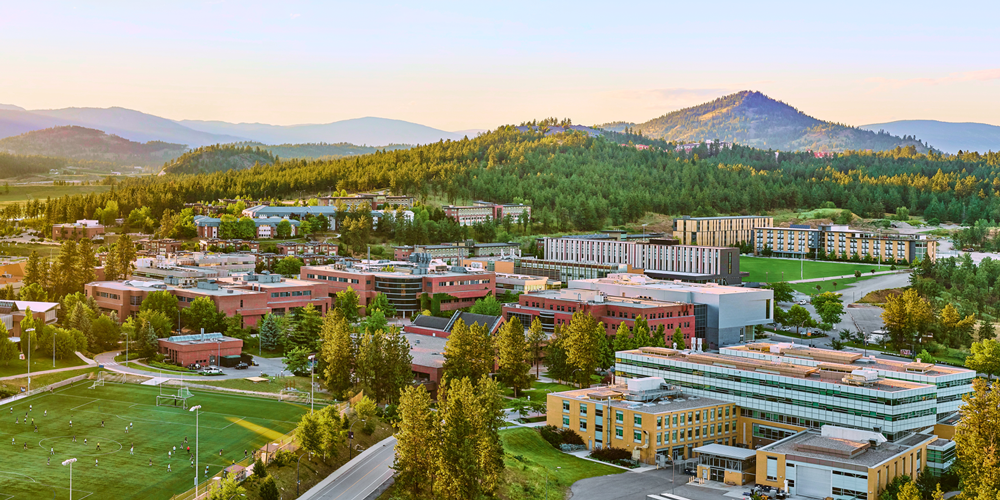
Discover the Okanagan
A diverse natural region with sandy beaches, beautiful lakes, vineyards, orchards and snow-capped mountains, the Okanagan is an inspirational landscape perfect for those seeking leisure or outdoor adventure.
UBC's Okanagan campus borders the dynamic city of Kelowna, a hub of economic development with a population of more than 150,000 people— the fourth fastest-growing population in Canada.
